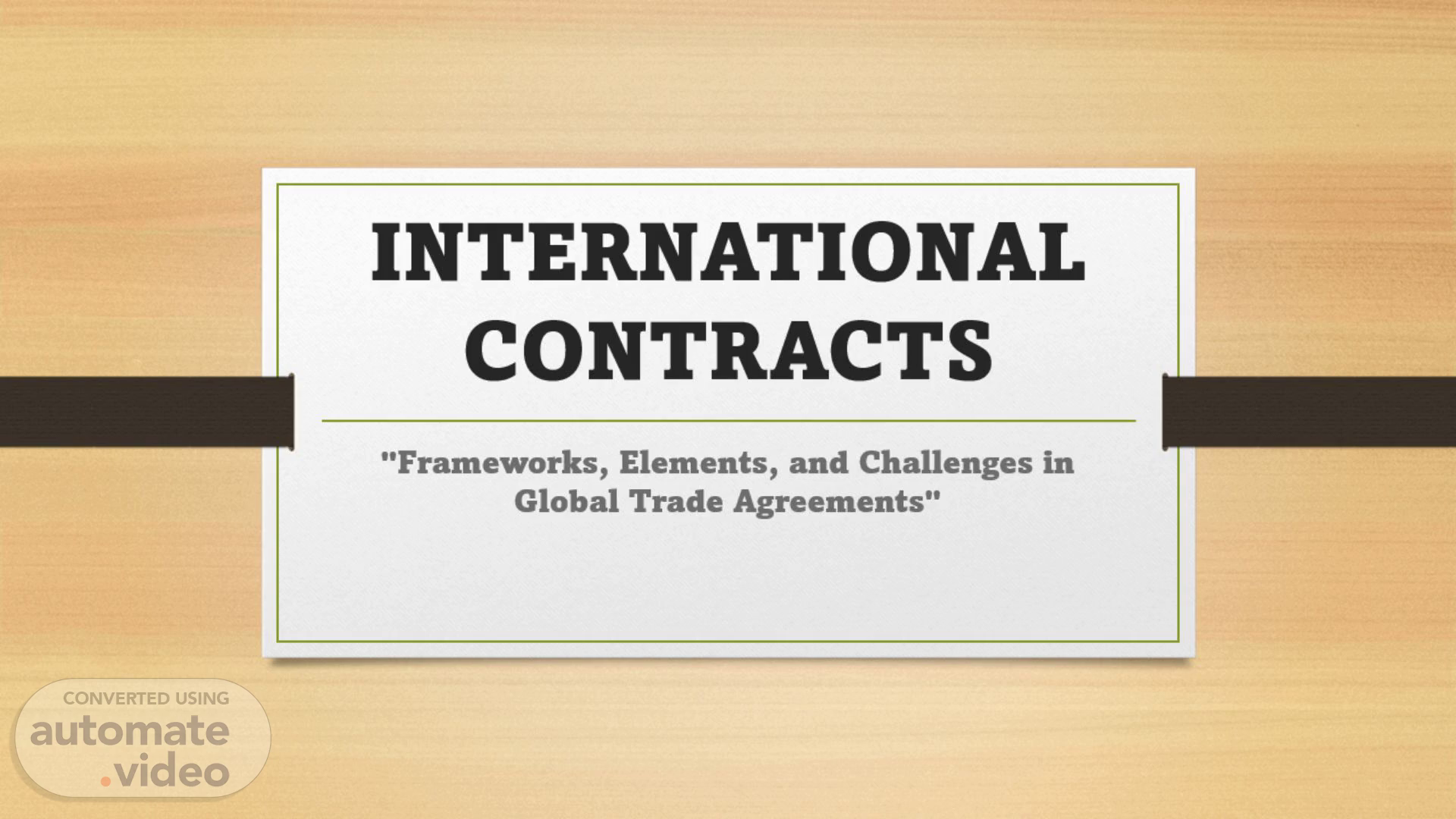Scene 1 (0s)
[Audio] INTERNATIONAL CONTRACTS "Frameworks, Elements, and Challenges in Global Trade Agreements".
Scene 2 (7s)
[Audio] INTRODUCTION : INTERNATIONAL CONTRACTS An international contract is a legally binding agreement between parties located in different countries. These contracts govern cross-border transactions and interactions in areas such as trade, investment, services, and intellectual property..
Scene 3 (30s)
[Audio] TYPE OF INTERNATIONAL CONTRACTS EMPLOYMENT AGREEMENT SALES CONTRACTS Govern multinational hiring and work conditions. For cross-border sale and purchase of goods, often governed by CISG. AGENCY AGREEMENT LICENSING AGREEMENTS Define relationships for distributing products internationally. Allow use of intellectual property in another country. CONSTRUCTION AGREEMENT FRANCHISE AGREEMENT Manage international infrastructure projects. Grant rights to operate under a brand abroad. FINANCING CONTRACT For funding across borders. JOINT VENTURE AGREEMENT Partnerships between companies in different nations.
Scene 4 (1m 11s)
[Audio] LEGAL FRAMEWORK Convention/Treaty CISG (United Nations Convention on Contracts for the International Sale of Goods) Hague Convention on the Law Applicable to Contracts New York Convention on Recognition and Enforcement of Foreign Arbitral Awards The legal framework of international contracts involves a combination of national laws, international treaties, and conflict of laws principles..
Scene 5 (1m 40s)
[Audio] HISTORY OF INTERNATIONAL CONTRACTS 1. ANCIENT ERA The Silk Road and other early trade networks facilitated the development of basic cross-border contracts. 2. MIDDLE AGES (5th – 15th CENTURY) international contracts were shaped by feudal law, trade guilds, and customary law, often enforced by monarchs. 3. MODERN PERIOD (20th CENTURY-PRESENT) Modern international contracts are governed by international treaties, national laws, and conventions, with a focus on dispute resolution and enforcement..
Scene 6 (2m 19s)
[Audio] CHALLENGES IN INTERNATIONAL CONTRACTS 1. Determining applicable law and jurisdiction disputes. 2. Compliance with diverse legal and regulatory frameworks. 3. Cultural differences and language barriers. 4. Currency fluctuations and international payment delays. 5. Political instability, sanctions, and economic risks. 6. Enforcement of judgments across borders. 7. Need for effective dispute resolution mechanisms..
Scene 7 (2m 57s)
[Audio] CONCLUSION Collaboration International contracts foster cross-border business relationships and economics corporation. Expansion They enable companies to access new markets and capitalize on global opportunities. Globalization International contracts are a fundamental tool for navigating the interconnected world economy..
